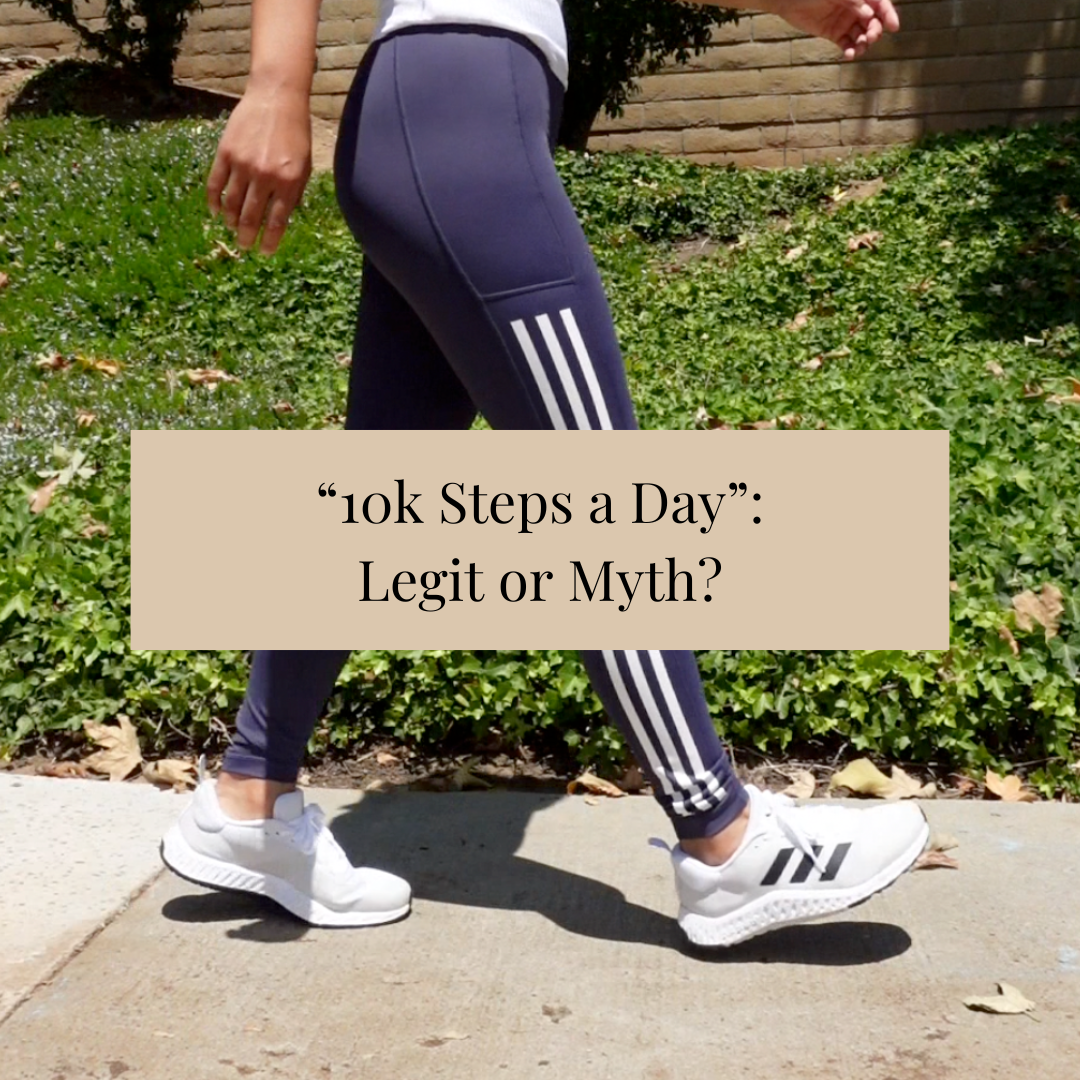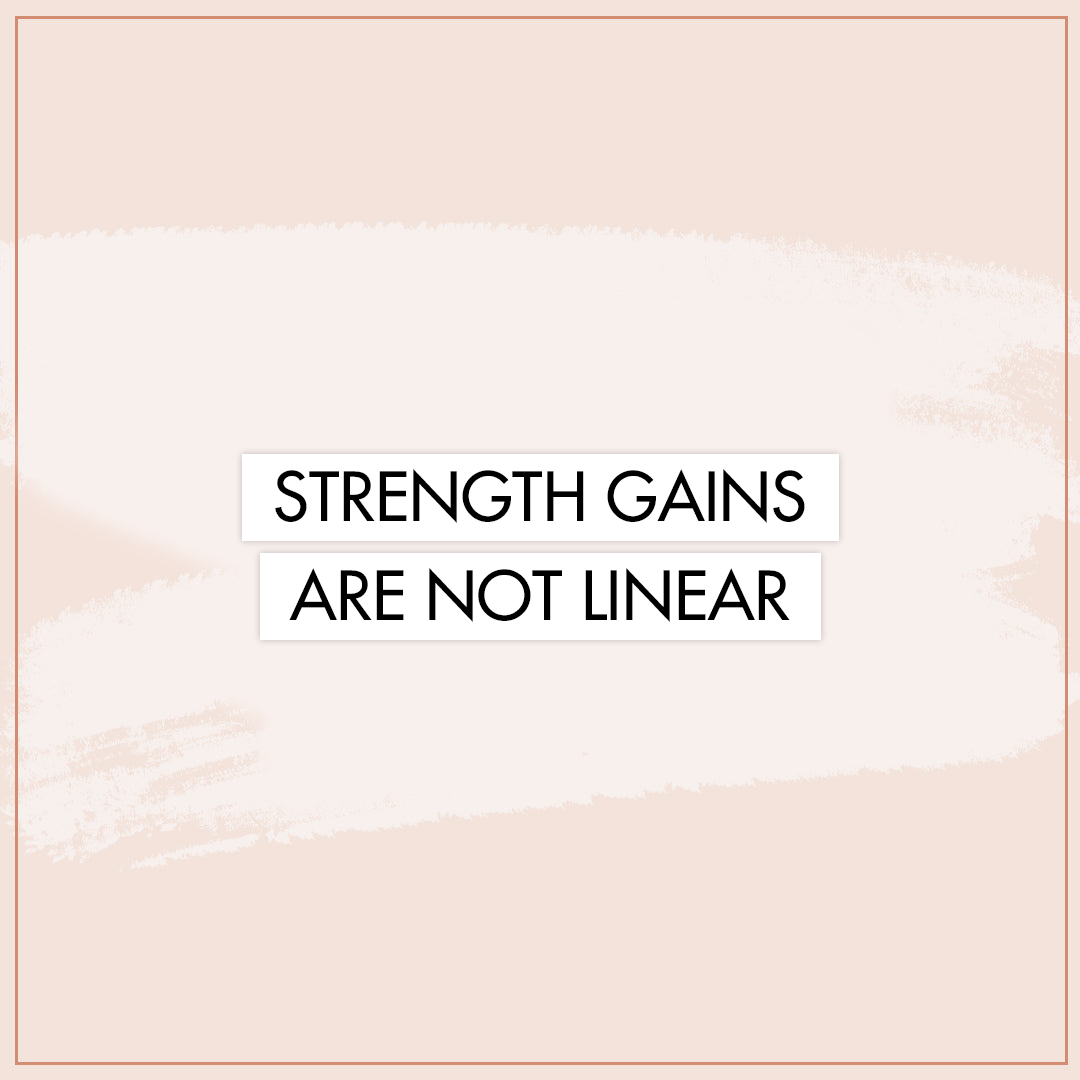Fitness
Death of the Dieting Paradigm: Prioritizing Health Over Weight
Take a moment to picture this: You walk into your doctor’s office for an appointment you made after noticing some uncharacteristic stomach pain. Upon arrival, the nurse directs you to […]
10k Steps a Day: Legit or Myth?
For as long as I can remember, health professionals, coaches, fitness enthusiasts, and everyday people have been touting the idea that 10k steps per day is the gold standard. But […]
How to Lose Fat Without Dieting: Changing the Narrative and Achieving Lasting Results
The fitness industry has long promoted a one-dimensional approach to fat loss, emphasizing strict diets and calorie tracking. However, there are alternative methods that can help you achieve your physique […]
Don’t miss the fitness forest for the trees
If you’re anything like me, you might’ve gone to great lengths to see progress in your fitness goals at some point in your life…
Just You and the Bar: A Bikini Pro Reflects on Her First Powerlifting Meet
This is a post that I wrote together with my…
Willpower is Not the Answer to Sustainable Weight Loss
Every now and then, I have a reader or a client whose body seems incredibly resistant to losing bodyweight…
So You Want to Be a Powerlifter? Here are 20 Things You Need to Know
The basic premise of any powerlifting meet is as follows: you compete with other individuals…
Bikini by Day, Powerlifting by Night
I recently competed in my second powerlifting meet in the USAPL federation on April 2 in Chandler…
Strength Gains are Not Linear
You can’t expect to put 10lbs on your squat every single week. While that would be nice in theory, that means that if I were to start out with a 95lbs squat on…
Are Leaner People Happier?
There’s this circulating idea that being thin and lean brings happiness. With the recent explosion of social media over the past several years (Facebook, Instagram, and Snapchat…
Take a moment to picture this:
You walk into your doctor’s office for an appointment you made after noticing some uncharacteristic stomach pain. Upon arrival, the nurse directs you to the scale and takes down your weight. After cross referencing a BMI chart, she informs you that you’re overweight (which you already knew) and ushers you into the closest exam room to wait.
Thirty minutes later, the doctor finally saunters in. Without so much as a glance in your direction, they check your records and tell you to lose 25 pounds. You’re given a pamphlet containing some vague information about the importance of healthy eating and exercise and sent home.
Your stomach pain, which was never addressed, has been overshadowed by something else. You feel annoyed, belittled, and not particularly empowered or motivated to make a change, but pull out your phone and doom scroll for a few hours before picking a random diet to try.
It works.
Kind of.
After a few weeks of suffering, you realize that you’re extremely miserable. You ditch the diet, binge eat for a few days, and regain all the weight you lost, dreading your next check-up where the cycle will inevitably continue.
This is a story I hear far too often from followers, clients, and people in general. After being encouraged (if you can call it that) by a healthcare provider, they actively pursue weight loss and see some initial success. But that’s not the hard part. It’s maintaining the weight loss that people struggle with the most.
Research backs this up. In 1959, researchers conducted the first study that followed participants for a longer period of time. Out of the 100 participants, all of whom had obesity, only 12% hit the lowest weight loss goal. After two years of treatment, only two managed to maintain their weight loss. That is not super surprising, considering the only guidance the participants received was to keep their calories between 800-1,500 per day.
There aren’t many papers examining the long-term ramifications of weight loss protocols, but we do know that weight regain is a very real phenomenon. On average, more than 50% of the weight someone loses is regained within two years. By five years, the average weight regain reaches a whopping 80%.
The Problem with BMI
When we go to the doctor, our body weight is often discussed in relation to what’s considered “ideal” for our height. But what does this actually mean?
Back in the 19th century, what is known today as the Body Mass Index (BMI) was created. Since its inception, BMI has evolved from an average ratio of height to weight to a ratio of weight to height squared, making it slightly more reliable. But it still has far-reaching limitations, and despite being shown time and time again to elicit errors and cause confusion, it’s still a prevalent tool in clinical settings today.
Here are some examples of its unreliability:
- Racial discrepancies: BMI may under or overestimate fat mass across different demographics, often overestimating body fat in Asian-Indian populations and underestimating body fat in African-American populations.
- Athletes: Because BMI is a measurement of relative body weight that doesn’t account for body composition, athletes (who have high levels of lean body mass) are often incorrectly categorized as overweight or obese.
BMI is also a poor predictor of someone’s health status, as demonstrated by a recent meta-analysis. The paper, which reviewed 82 studies containing more than 2.7 million people, concluded that the lowest all-cause mortality is observed in patients with a BMI between 25 and 30 – patients that are “technically” overweight.
This isn’t entirely surprising when you consider that BMI fails to account for health-promoting behaviors like exercise, smoking, and eating habits. It also illustrates a problem: healthcare providers who rely on BMI in isolation and use it to justify blanket recommendations are misleading themselves and their patients.
Thankfully, the American Medical Association took a new stance on BMI last year, acknowledging its limitations and suggesting that it be used “in conjunction with other valid measures of risks such as, but not limited to, measurements of visceral fat, body adiposity index, body composition, relative fat mass, waist circumference, and genetic/metabolic factors.”
That’s a huge win. But where do we go from here?
Health vs. Weight-Centric Models
Despite the AMA’s new position on BMI, our society still puts a lot of emphasis on BMI and body weight. We’ve been conditioned to think that gaining weight is something to feel ashamed of, and when our efforts to lose it don’t pay off, motivation and adherence to things like calorie tracking, physical activity, and self-monitoring tend to tank.
Think back to The Biggest Loser, where contestants were publicly shamed – on national television – when the scale didn’t move in the right direction. Over the course of 17 seasons, it was rare to see a contestant acknowledged for engaging in health-promoting behaviors.
This leads us into controversial territory: The “fat but fit” paradox.
It’s well-established that obesity is associated with multiple physical and mental co-morbidities. But this doesn’t mean that being thin or normal weight automatically makes someone healthier than someone who’s obese.
It’s been demonstrated many times in the literature that obese individuals who engage in healthy behaviors like getting regular exercise, eating fruits and vegetables, limiting alcohol, and abstaining from smoking can significantly decrease their mortality risk, even when body weight remains the same.
I don’t have obesity, but like these study participants, I’ve experienced huge improvements in my health over the past year without losing a single pound. Over the course of my half-marathon training, my cardiovascular fitness improved dramatically, and I’ve seen a massive drop in blood pressure — it went from 140/80 to 110/76 in a single year!
My n=1 story is another example that illustrates why health-centric models are far superior to weight-centric ones. When we take a weight-neutral approach and focus on helping people adopt healthy self-care behaviors, it’s much more likely that they’ll escape the demoralizing cycle of weight loss and weight gain and begin to experience real health benefits.
Putting it into Practice
As a coach, I’ve helped hundreds (if not thousands) of people improve their health without emphasizing BMI or scale weight. Rather than pulling an arbitrary number out of thin air and making that the sole focus of their journey, we focus on establishing healthy behaviors, such as:
- engaging in regular aerobic exercise and resistance training
- improving diet quality by increasing fruit and vegetable intake, prioritizing fiber, and staying mindful of things like saturated fat and added sugars
- limiting alcohol consumption
- abstaining from smoking
- establishing social support
- managing stress
With more than 14 years of experience under my belt, I’ve learned that empowering clients with the tools they need to take control of their own health is the biggest gift I can give them.
If that process is accompanied by weight loss, cool. And if it’s not? I’m still doing my job.
References:
Gaesser, G. A., & Angadi, S. S. (2021). Obesity treatment: Weight loss versus increasing fitness and physical activity for reducing health risks. iScience, 24(10), 102995. https://doi.org/10.1016/j.isci.2021.102995
Guess, N. (2012). A qualitative investigation of attitudes towards aerobic and resistance exercise amongst overweight and obese individuals. BMC research notes, 5, 191. https://doi.org/10.1186/1756-0500-5-191
Hagerman, C. J., Onu, M. C., Crane, N. T., Butryn, M. L., & Forman, E. M. (2024). Psychological and behavioral responses to daily weight gain during behavioral weight loss treatment. Journal of behavioral medicine, 47(3), 492–503. https://doi.org/10.1007/s10865-024-00476-4
Hall, K. D., & Kahan, S. (2018). Maintenance of Lost Weight and Long-Term Management of Obesity. The Medical clinics of North America, 102(1), 183–197. https://doi.org/10.1016/j.mcna.2017.08.012
Keys, A., Fidanza, F., Karvonen, M. J., Kimura, N., & Taylor, H. L. (2014). Indices of relative weight and obesity. International journal of epidemiology, 43(3), 655–665. https://doi.org/10.1093/ije/dyu058
Li, Y., Pan, A., Wang, D. D., Liu, X., Dhana, K., Franco, O. H., Kaptoge, S., Di Angelantonio, E., Stampfer, M., Willett, W. C., & Hu, F. B. (2018). Impact of Healthy Lifestyle Factors on Life Expectancies in the US Population. Circulation, 138(4), 345–355. https://doi.org/10.1161/CIRCULATIONAHA.117.032047
Matheson, E. M., King, D. E., & Everett, C. J. (2012). Healthy lifestyle habits and mortality in overweight and obese individuals. Journal of the American Board of Family Medicine : JABFM, 25(1), 9–15. https://doi.org/10.3122/jabfm.2012.01.110164
Nowak, M. M., Niemczyk, M., Gołębiewski, S., & Pączek, L. (2024). Impact of Body Mass Index on All-Cause Mortality in Adults: A Systematic Review and Meta-Analysis. Journal of clinical medicine, 13(8), 2305. https://doi.org/10.3390/jcm13082305
Prentice, A. M., & Jebb, S. A. (2001). Beyond body mass index. Obesity reviews : an official journal of the International Association for the Study of Obesity, 2(3), 141–147. https://doi.org/10.1046/j.1467-789x.2001.00031.x
Quetelet L. A. (1994). A treatise on man and the development of his faculties. 1842. Obesity research, 2(1), 72–85. https://doi.org/10.1002/j.1550-8528.1994.tb00047.x
Stunkard, A., & McLaren-Hume, M. (1959). The results of treatment for obesity: a review of the literature and report of a series. A.M.A. archives of internal medicine, 103(1), 79–85. https://doi.org/10.1001/archinte.1959.00270010085011
Wu, Y., Li, D., & Vermund, S. H. (2024). Advantages and Limitations of the Body Mass Index (BMI) to Assess Adult Obesity. International journal of environmental research and public health, 21(6), 757. https://doi.org/10.3390/ijerph21060757










